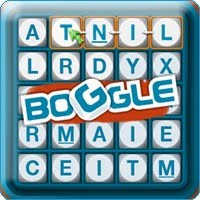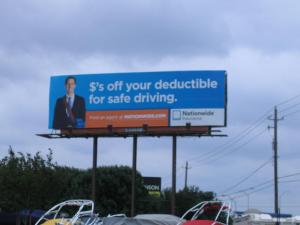Nationwide may be on ‘your side’, but they need a grammar lesson
I remember the scene as if it were yesterday.
Our family huddled around a table at a small pizza place in the Upper Peninsula of Michigan. You don’t know cold until you’ve visited Ironwood, Michigan in December. We were ‘up north’ for our yearly winter ski trip. My brother and I had carved up the slopes like the flamboyant Italian skier Alberto Tomba (remember him?) — and we were famished.  The wind howled outside. Immense banks of snow lined the streets. Inside, there was warmth and HUNGER.
The wind howled outside. Immense banks of snow lined the streets. Inside, there was warmth and HUNGER.
As we eagerly eyed the menu, we heard ‘SHAKE, SHAKE, SHAKE’ reverberating from under the table. It was BOGGLE time. My Mom, the lifelong teacher and learner, thought there was nothing more ‘appropriate’ while waiting for the pizza than spending some idle time around the ‘Boggle’ puzzle. My brother and I saw a number of strange glances from tables nearby, but we didn’t care. It was a ‘noise’ that was familiar, common.
For those unfamiliar, Boggle is a word game where players need to put together words amongst the scramble of letters. For lovers of words, it’s actually quite addicting.
Our family watched Mom ‘shake the puzzle’ numerous times over the years and I became increasingly fond and cognizant of the importance of proper English grammar.
Years later, driving along US-183 in Austin, Texas, my ‘now highly-trained’ eye saw this:
UGGH!! Are you serious? Now, I’ll make a grammatical glitch on occasion, but a glaring mistake like this in the public eye is a big no-no.
This is Nationwide Insurance. Yes, you’ve seen or heard their commercials: ‘Nationwide is on your side.” They are #124 on the Fortune 500 list. They have 36,000 employees. This isn’t a Mom and Pop store down the street – this is big business.
For all of their accolades, however, they still made a terrible blunder on this billboard.
I surely hope I am not the ONLY Austinite that discovered this egregious error. Do you see it?
Here’s the official definition for the grammarians keeping score at home:
Use the apostrophe to show possession. Place the apostrophe before the s to show singular possession. Examples:
one boy’s hat
In this context, the dollar does not need an apostrophe.
I actually applaud Nationwide’s somewhat edgy, humorous advertising, but this billboard mess doesn’t score points in their ‘attention to detail’ department. Let’s hope Nationwide reads this lesson for next time.
Nationwide: hold the apostrophe for when it’s really needed.
Boggle fans in Austin: If you want to get a game going, I am in.
Until next time,
Dan Naden


